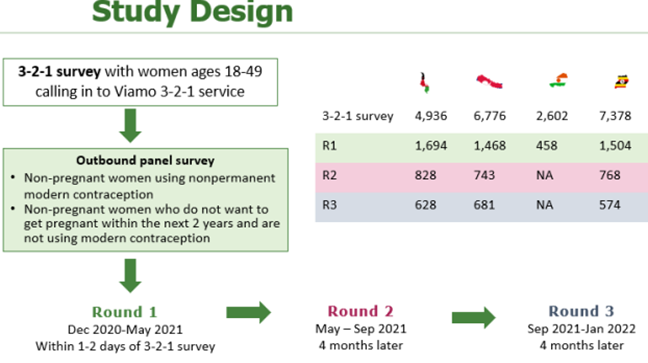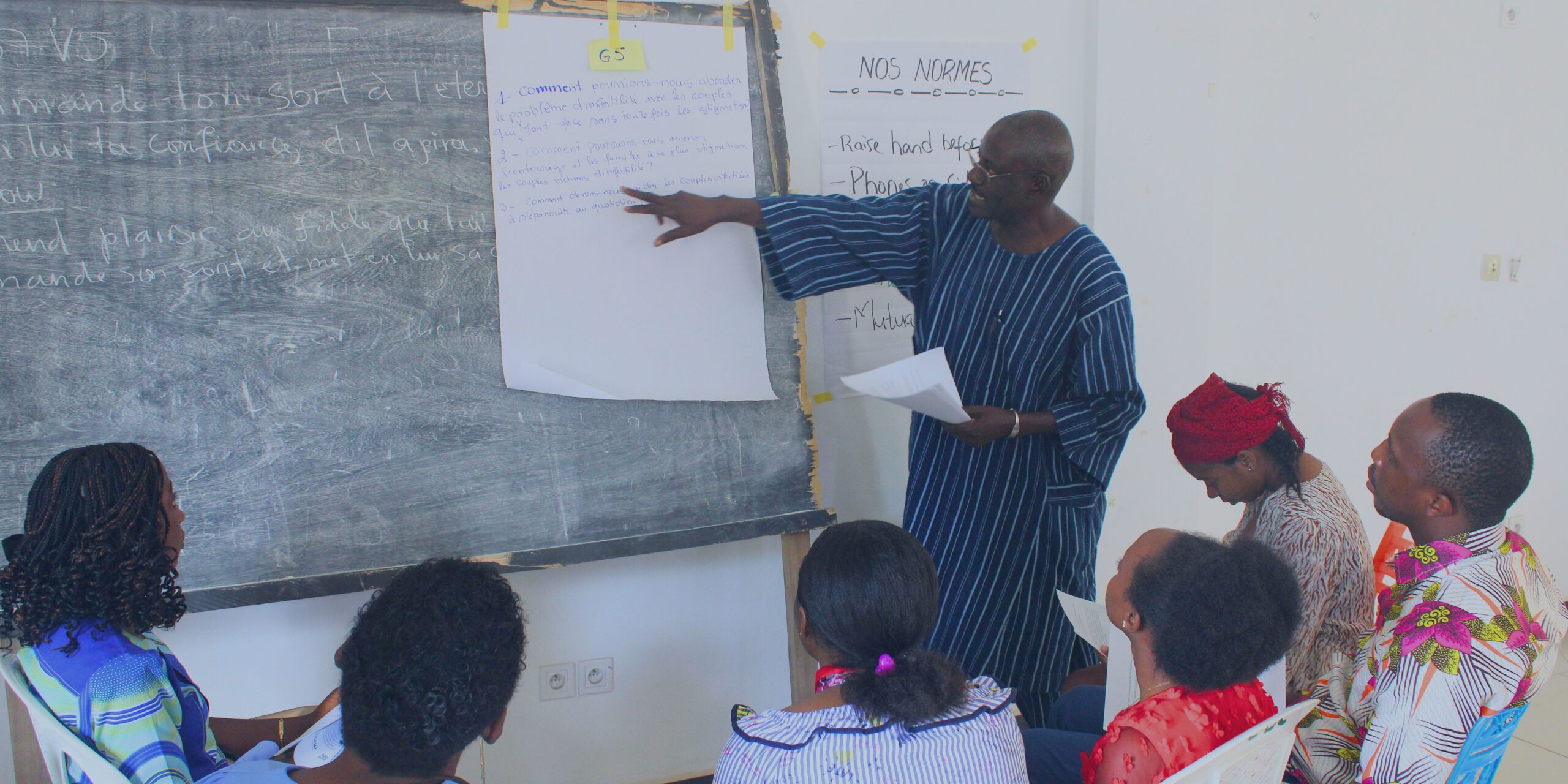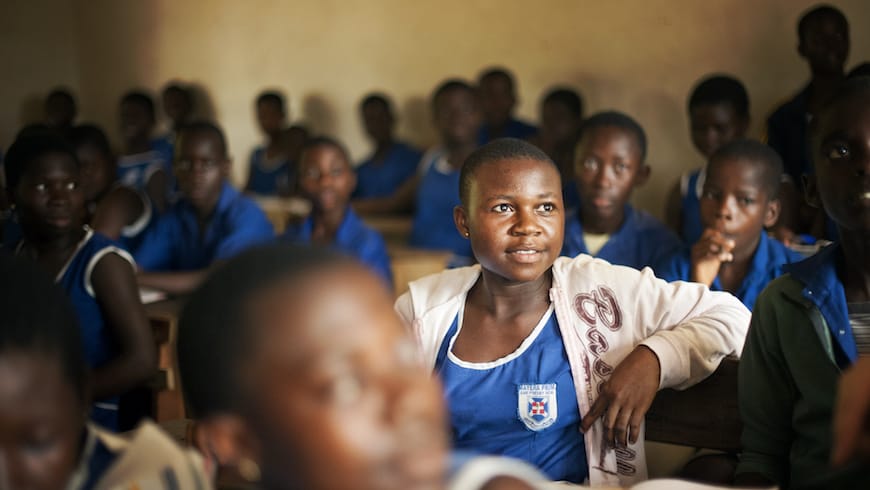Assessing impact of COVID-19 on FP access & use through Viamo interactive voice response platform in Niger, (Malawi, Uganda, and Nepal)
Goal
Describe the effects of the COVID-19 pandemic on voluntary FP use and method choice by periodically gathering information on FP behaviors and barriers to accessing services during the pandemic.
Approach
R4S worked with Viamo to leverage their 3-2-1 Interactive Voice Response (IVR) platform to deploy a panel survey efficiently and safely with women in Nepal, Niger, Malawi, and Uganda. Women who accessed content via their mobile phone on any topic through the 3-2-1 service were recruited for a brief survey. For those completing the survey, and eligible for a panel survey (i.e. not pregnant, did not want to become pregnant within next two years and not using modern contraception), they were re-contacted through a series of outbound surveys. This allowed for the documentation of FP access and use over time among the same women, as well as an assessment of barriers to care. Between December 2020 and January 2022, 21,692 women (ages 18-49) completed the initial survey (through 3-2-1) and 5,124 women completed an outbound survey (Round 1).

Findings
Overall, method choice was mostly realized among modern users during the pandemic. On average, 79% of women already using modern contraception were able to access their preferred method during the pandemic across survey rounds and countries.
Related items
- The main results from the 3-2-1 survey and the first round of the panel survey were summarized in a manuscript titled “Women’s Experiences With Family Planning Under COVID-19: A Cross-Sectional, Interactive Voice Response Survey in Malawi, Nepal, Niger, and Uganda” published in Global Health: Science and Practice.
- Standardized questions “Documenting the Effects of COVID-19 on FP Access and Use” were made available online in English and French.
- Brief: Rapid assessment of COVID-19 impact on family planning in Nepal and Africa
- Brief: Women’s experiences with family planning access and use during COVID-19 in Nepal
- Oral flash presentation poster / slides on “Learning to protect family planning during future crises: A prospective, longitudinal study on women’s experiences with family planning access and use during COVID-19 in Malawi, Nepal, Niger, and Uganda”
- A blog, on “What Did We Learn? Women’s Experiences with Family Planning Access and Use During the COVID-19 Pandemic” summarizing the activity’s findings
Partners: FHI 360, with support from EVIHDAF, MakSPH, and PSI, using Viamo data collection platform
Others Ongoing Projects

Social Behaviour Change Workshop on infertility
Social Behaviour Change Workshop on infertility

